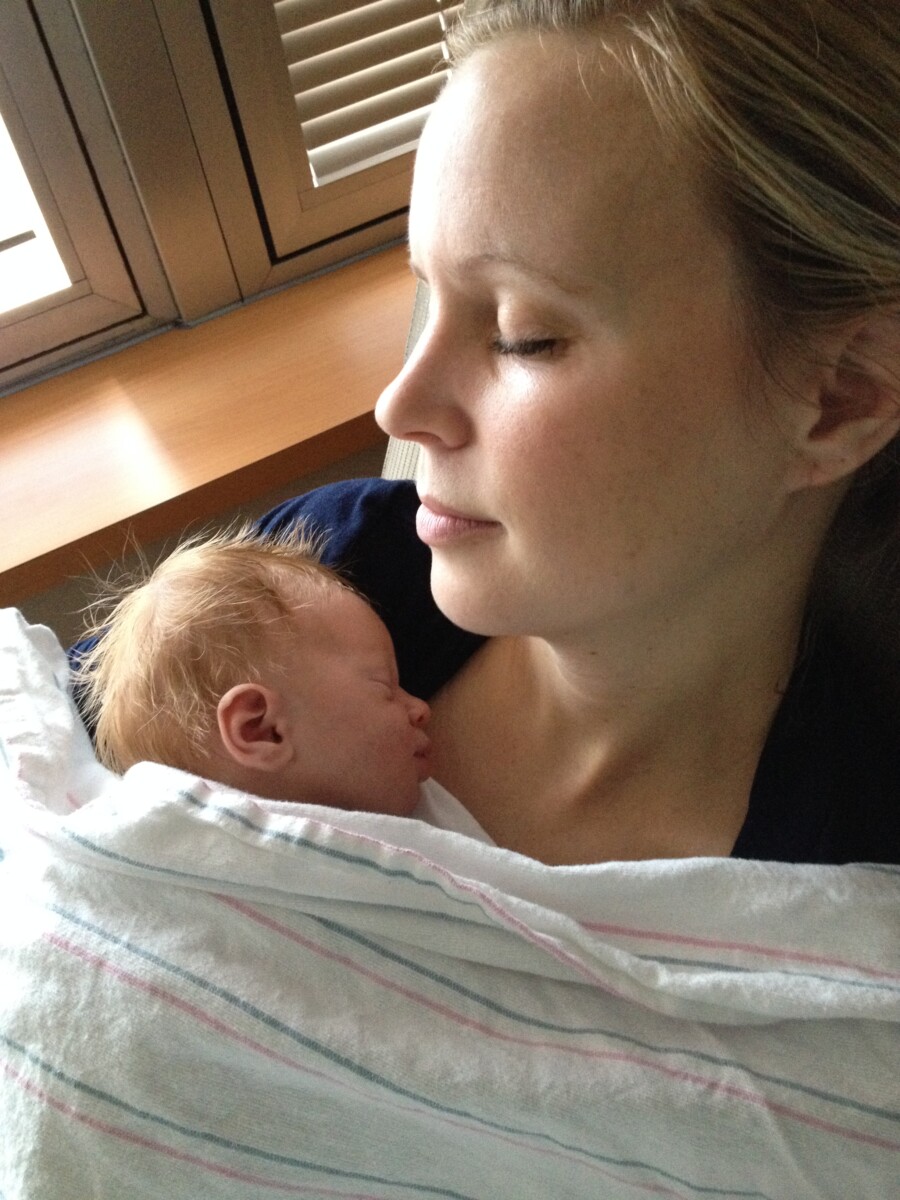My three tips for new moms are to get your bloodwork done, see a pelvic floor physical therapist, and be patient in the season you are in. A lot has changed but that doesn’t mean we have to settle for feeling bad or not running how we want. I want new moms to advocate for themselves while being patient in the process.

A big part of this website is that I want people to learn from my experiences and mistakes because I have made a lot! I am sharing three tips for new moms from the lessons I’ve over the years as a mother runner—lessons I wish I knew as a new mom that would have made my life easier…& more pleasant.
To be honest, I think a lot of the mistakes and the experiences I have make me a better running coach to fellow mother runners. If a mother runner isn’t practicing patience with her training, I call her out. If she wants to run with a budding injury, I encourage more rest and more time. And if she isn’t feeling great, I urge her to not accept it but see a doctor or specialist.
(Learn more about my coaching here!)
I am here to share the three tips for new moms I wish I knew as a new mother runner in hopes it helps you sidestep pain, misery, or discontent.
Let’s go!
Skip Ahead

My Tips for New Moms
#1 Tip for New Moms: Get your blood work done regularly. (Feeling like crap is not your new norm.)
My first tip for new moms is maybe the most important one—feeling bad all the time is not normal! Just because your body and life have been rocked and you haven’t slept a solid 7 hours in weeks or months doesn’t mean feeling like crap is your new norm.
One of the first things I ever wrote about was how running helped me reveal that I had a lot of unknown health issues that were making me feel incredibly fatigued—and depressed.
Related: Why Runners Should Get Regular Bloodwork
I was tanking my running workouts and my running coach urged me to get blood work done, thinking my ferritin was low. It took convincing but when I finally went I learned I had a lot of issues. My hormones were out of whack (which is not uncommon postpartum). I had bacterial overgrowth in my gut. And I was deficient in a lot of nutrients including iron and vitamin D.
No wonder I felt terrible most of the time. I also felt angry and depressed (thanks to sky-high estrogen!).
Related: Can Running Help with Postpartum Depression?
I also had days where I felt incredibly tiredand my stomach would get all bloated and upset, seemingly out of the blue.
I accepted this as the new norm as a mom of two. I was working from home, running a lot, and not sleeping because my son still wanted to nurse throughout the night
Getting my labs drawn changed my life. I realized that feeling bad 24/7 wasn’t my new reality.
Just because you have new demands on you, doesn’t mean you should feel bad! If your mood has changed, you feel lethargic, or have any other symptoms, I urge you to get a full blood panel including hormone levels and ferritin to ensure you are where you need to be.
For me, I started taking supplements to optimize my nutrient levels and balance out my hormones. I also needed to take some antibiotics and a really good probiotic to help my gut imbalance.
(I recommend Previnex probiotics! Save 15% with code TMR15!)

#2 Tip for New Moms: See a pelvic floor physical therapist.
I have a big regret that I didn’t work with a pelvic floor physical therapist before running postpartum. I can’t blame myself because I didn’t know any better but what I can do is EDUCATE YOU!
After the birth of my second (and last) child, I started running more seriously and then competitively. Soon after, I got injury after injury.
Just this year I learned that I have diastasis recti along with core instability that’s factoring into ALL of my injuries. Had I worked with a pelvic floor PT, there is a chance all these injuries could have been avoided and I would have been able to chase my dreams full throttle.
Related: Is 6 Weeks Too Soon to Return to Running Postpartum?
But alas, hindsight is 20/20. So, let mine be your perfect vision.
What does pelvic floor physical therapy do?
Pelvic floor physical therapy helps you regain strength and stability in your pelvic floor and core postpartum to support daily functions and high-impact exercises like running. Being pregnant stretches, weakens, and (along with childbirth) can even injure these areas.
Related: Should I See a Pelvic Floor Physical Therapist?
There has been so much education about the importance of pelvic floor physical therapy that it is now a norm for my pregnant runners and postpartum runners to be seeing one.
I am always thrilled when a newly postpartum runner inquiring about coaching is already working with one. If they are not, I tell them I will not coach them until they do. (And ideally, they will see a pelvic floor PT who works with runners).
It is NEVER too late to see a pelvic floor physical therapist. I have athletes in their 50s (and 40s, like me!) who are just now undergoing pelvic floor physical therapy to address issues stemming from the postpartum period.
If you plan on having a baby, are pregnant, are a new mom, or have suffered running injuries—I urge you to find a solid pelvic floor PT!
Related: How to Get Faster as a Master’s Runner
#3 Tip for New Moms: Be Patient & Know it’s a Season
Patience is the hardest part of this sport. So many of us want our goals NOW. We even think we should get there after weeks or months of running when realistically it can take years to spur the physiological changes needed to get there.
Similarly, after having a baby, we want to be right back where we were. Social media doesn’t help and honestly the truly inspiring stories of people like Elle Purrier St. Pierre or Makenna Myler crushing records and Olympic Trials qualifiers within a year of giving birth can rub salt in the wound.
Related: Can Breastfeeding Lead to Bone Injuries?
Postpartum life is hard. No way around it.

First, you feel like you are living in someone else’s body. Your body went through a ton of changes to grow and birth a human, and it needs time to heal—and yes, in most parts, return to where it was. I wanted to run to feel like my old self again but running felt so weird and uncomfortable.
Related: 8 Smart Breastfeeding Tips for Mother Runners
Secondly, time is not of your own. It belongs to a little sleeping, crying, pooping, little body. The days of running how I wanted for however long are gone. That can be a bitter pill to swallow.
And then the sleep. Oh, the sleep. So elusive. That for me was the hardest part. I was so freaking tired all.the.time because neither one of my kids slept well. So even if I tried to make plans to run early while they were still sleeping—they would wake up and only want to nurse. It felt like my running days were over–that what the naysayers told me when pregnant (that I would never be a “runner” after I had a baby) was coming true.
But guess what? It all passed. It was all a season. A stage. If there is any constant of parenting it is that everything is always changing. Contentment lies in embracing the season and the process of it all.
Related: Running on No Sleep? Do or Don’t?
So, if you are in a really tough spot: your brain wants to run, but your body doesn’t—or you baby won’t let you–please know this is temporary. It won’t last forever. And running, and your goals, will be waiting for you.
If you want guidance with your running goals including running after having a baby, check out my run coaching services. Also, be sure to check out my free training plans:
- Postpartum Training Plan
- After a Break Training Plan
- 5k Training Plans
- 10k Training Plans
- Half Marathon Training Plans
- Marathon Training Plans
- Strength Training Plan
